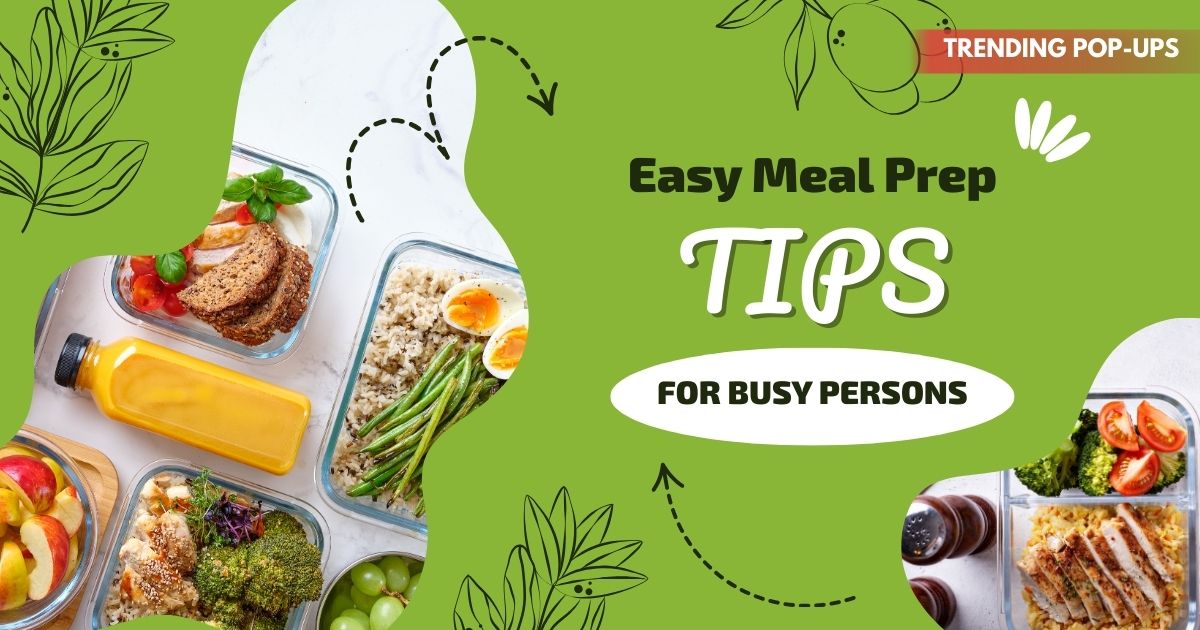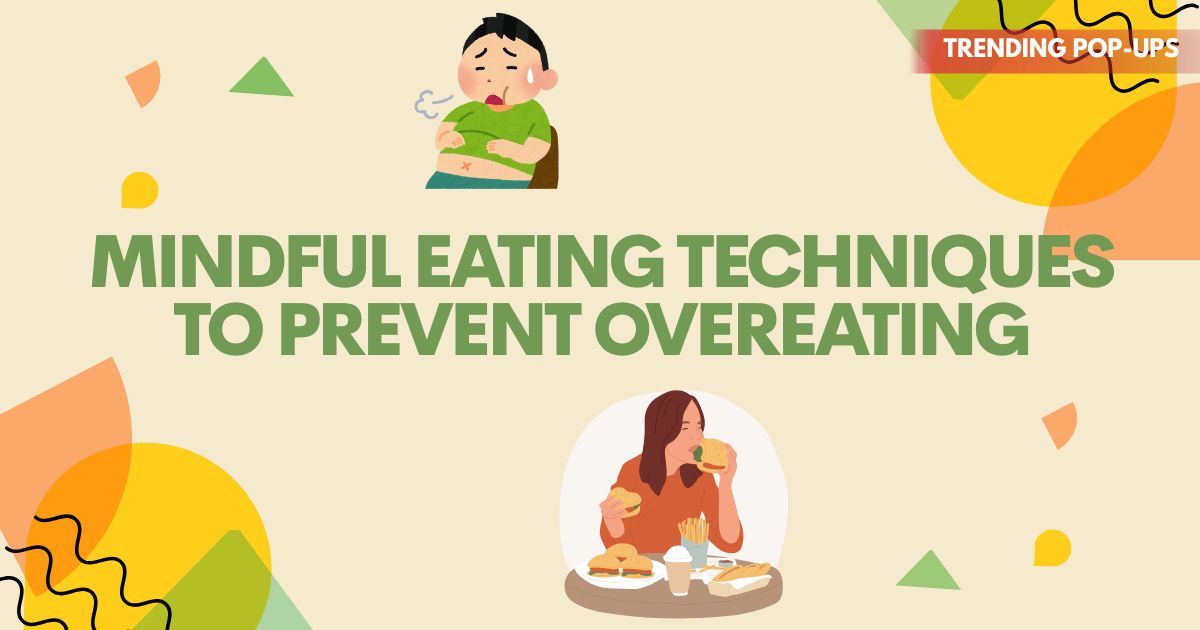In today’s fast-paced world, finding time to cook healthy meals can feel impossible. Between work, family, and other commitments, many individuals rely on takeout or quick processed foods, which are often high in calories and low in nutrients. Meal prepping offers a practical solution by allowing you to plan, cook, and store meals in advance, saving time and supporting healthier eating habits.
This article provides easy meal prep tips for busy individuals, helping you stay organized, eat well, and reduce stress around mealtime.
Why Meal Prep is Essential for Busy Individuals
Meal prep has become a cornerstone of healthy living for busy people. Some benefits include:
-
Time-saving: Cooking in bulk reduces daily cooking time.
-
Cost-effective: Buying ingredients in bulk and planning meals minimizes food waste.
-
Healthier choices: Prepping meals prevents impulsive fast-food decisions.
-
Portion control: Pre-portioned meals help manage calorie intake and nutrition.
With proper planning, meal prep can turn eating into a stress-free, efficient routine rather than a daily chore.
Plan Ahead for Success
The first step in meal prepping is planning:
1. Create a Weekly Meal Plan
-
List breakfasts, lunches, dinners, and snacks.
-
Consider dietary goals and nutritional balance.
-
Include recipes that are simple and quick to prepare.
2. Make a Grocery List
-
Based on your meal plan, create a list of ingredients to avoid last-minute shopping.
-
Stick to the list to prevent overspending and impulse purchases.
3. Batch Your Ingredients
-
Buy vegetables, grains, and proteins in bulk.
-
Pre-wash and chop vegetables to save prep time during the week.
Efficient Cooking Strategies
1. Cook in Batches
Batch cooking involves preparing large quantities of staples like rice, pasta, grilled chicken, or roasted vegetables at once. You can mix and match these staples throughout the week for different meals.
2. Use One-Pot or Sheet-Pan Recipes
One-pot meals or sheet-pan dinners minimize cleanup and reduce cooking time while still offering balanced nutrition.
3. Utilize Kitchen Gadgets
-
Slow cookers: Perfect for soups, stews, or shredded meats.
-
Instant pots: Cook meals faster with pressure cooking.
-
Blenders: Prepare smoothies and sauces quickly.
4. Prep Proteins Separately
Cook proteins like chicken, fish, tofu, or legumes in bulk. Store them separately so you can combine them with different grains and vegetables for variety.
Smart Storage Techniques
Proper storage is essential to keep prepped meals fresh:
1. Invest in Quality Containers
-
Use airtight containers or mason jars to preserve freshness.
-
Choose BPA-free plastic or glass containers for safety.
2. Label and Date Meals
-
Clearly label each container with the meal type and preparation date.
-
Rotate meals so older ones are consumed first.
3. Freeze for Longer Shelf Life
-
Freeze meals you won’t consume within 3–4 days.
-
Portion frozen meals to make reheating easier.
4. Store Ingredients Separately
-
Keep sauces, dressings, and crunchy toppings separate to maintain texture.
Tips for Maintaining Variety
Eating the same meals every day can become monotonous. Here’s how to add variety:
-
Mix proteins, grains, and vegetables to create different combinations.
-
Change seasonings and spices each week.
-
Rotate breakfast options: overnight oats, smoothie bowls, or egg muffins.
-
Incorporate seasonal produce for freshness and flavor.
Healthy Snack Prep
Busy individuals often reach for unhealthy snacks when hunger strikes. Prepping healthy snacks in advance can prevent this:
-
Cut fruit and vegetables into grab-and-go packs.
-
Portion nuts, seeds, and trail mix into small containers.
-
Prepare energy bites or protein bars for quick, nutritious options.
Meal Prep Mistakes to Avoid
To make meal prepping sustainable, avoid these common pitfalls:
-
Overcomplicating recipes: Choose simple, quick recipes that are easy to repeat.
-
Ignoring storage needs: Improper storage can lead to spoilage.
-
Cooking too little or too much: Balance portion sizes to avoid waste.
-
Skipping planning: Meal prep without planning often leads to unbalanced nutrition.
Benefits of Meal Prep for Busy Individuals
By implementing meal prep, you gain multiple advantages:
-
Reduced stress: Fewer last-minute decisions about meals.
-
Improved nutrition: Balanced, portion-controlled meals reduce overeating.
-
Better budget management: Avoid expensive takeout.
-
Consistency in healthy habits: Supports long-term health and wellness.
Conclusion
Meal prepping is a game-changer for busy individuals who want to maintain a healthy diet without sacrificing time. By planning meals, batch cooking, using smart storage, and maintaining variety, you can enjoy nutritious, ready-to-eat meals throughout the week. With a little effort upfront, meal prep makes eating healthy convenient, cost-effective, and stress-free.
Also Read : Low-Carb Diet: What You Need to Know for Weight Loss and Health
FAQs
Q1: How long can prepped meals last in the fridge?
Most cooked meals last 3–4 days in the refrigerator. Freeze extras for longer storage.
Q2: What are the best containers for meal prep?
Use airtight BPA-free plastic containers or glass containers for safety and freshness.
Q3: Can meal prepping help with weight loss?
Yes, portion-controlled meals and healthy ingredients support weight management.
Q4: How much time does meal prepping take?
With practice, 1–2 hours weekly is usually sufficient for prepping all meals.
Q5: Should snacks be included in meal prep?
Absolutely. Prepping snacks like cut veggies, fruits, nuts, or protein bars prevents unhealthy snacking.



